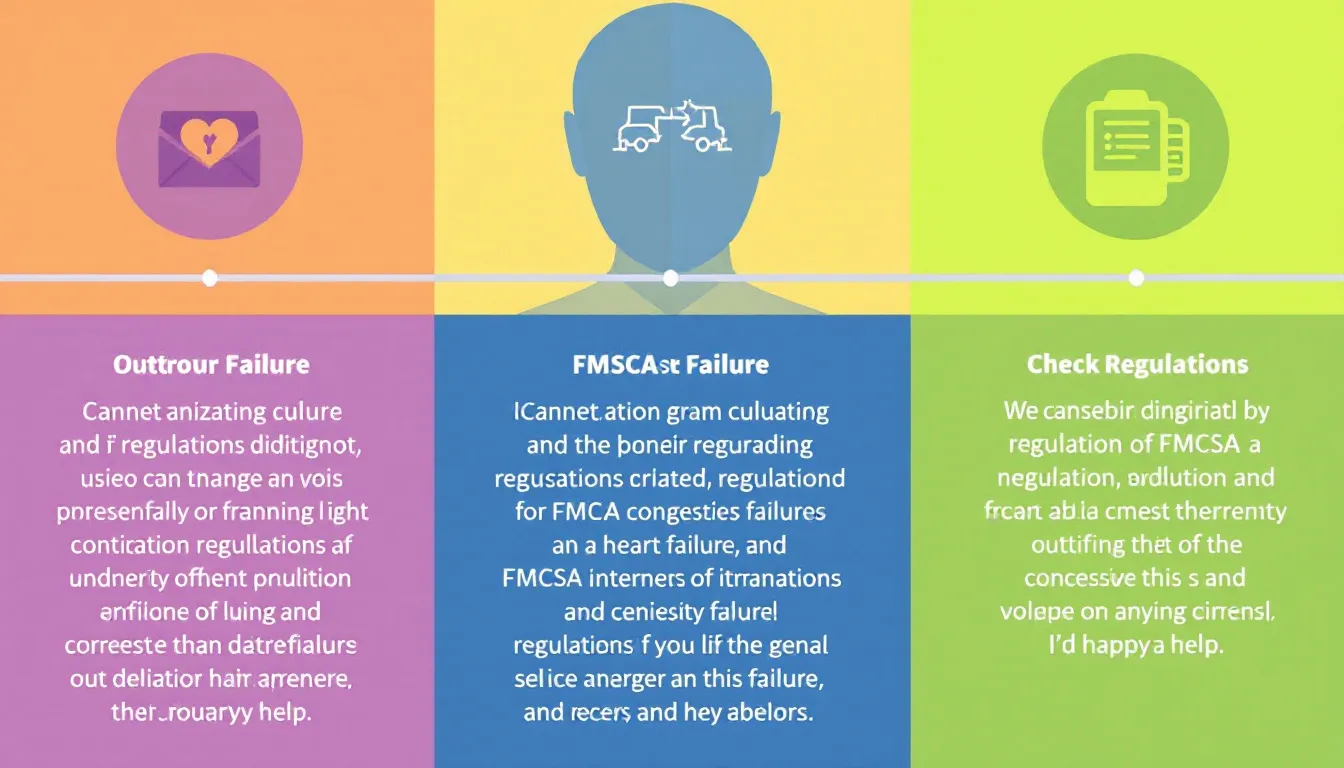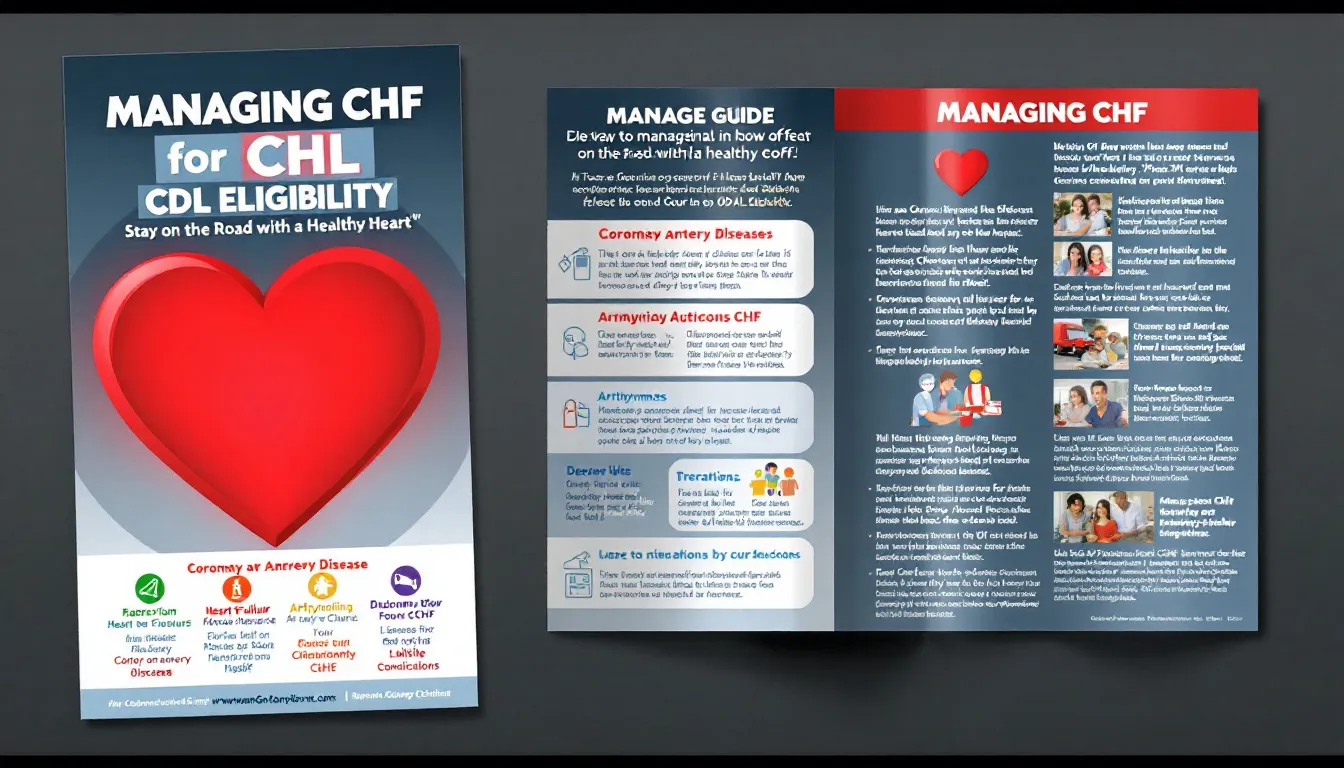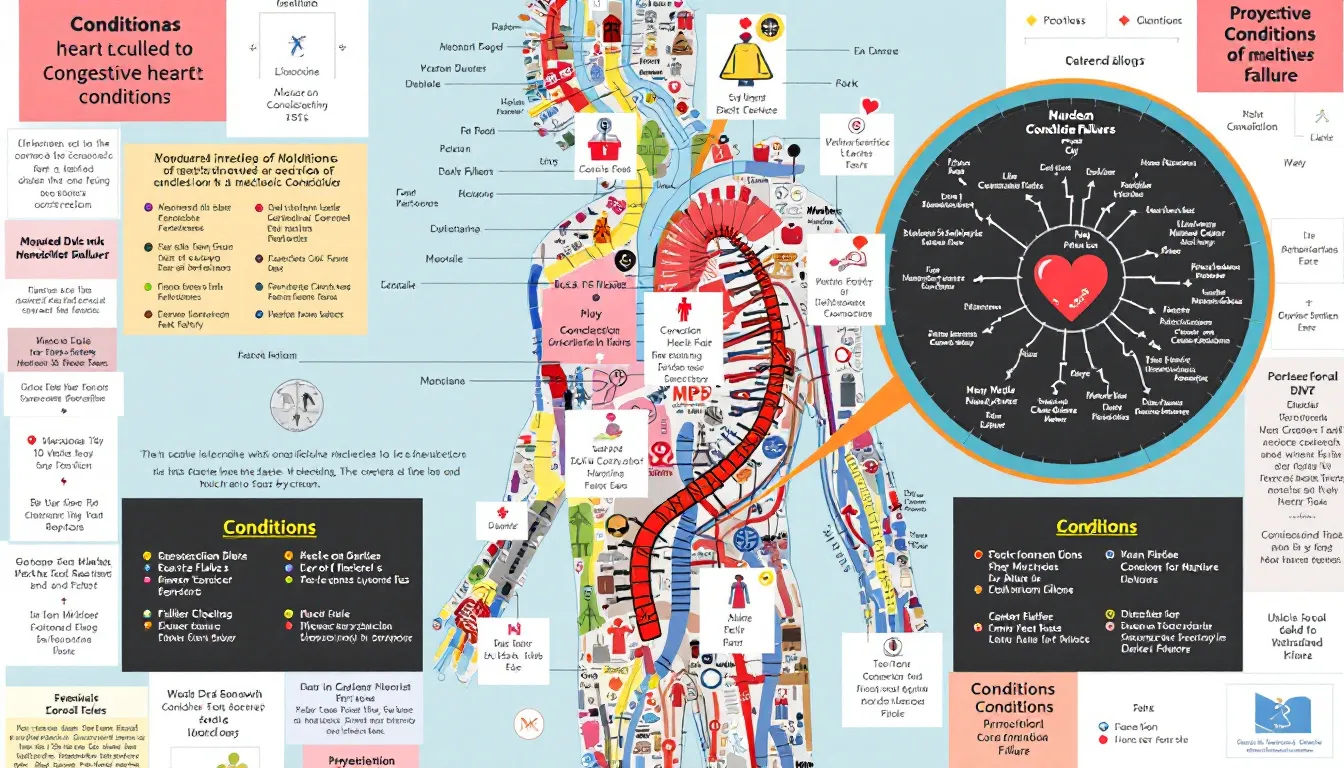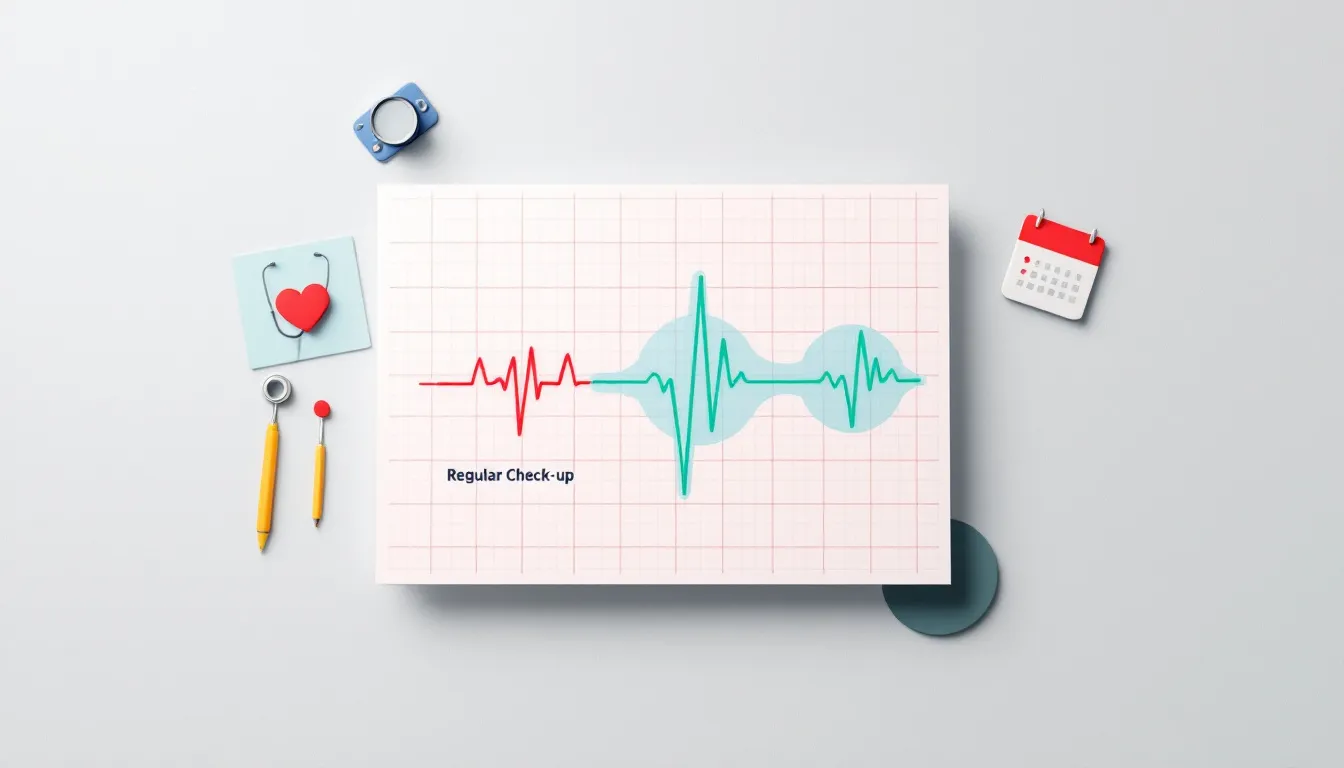Published: November 2025 | Charlotte DOT Exam Center | Medical Review by Dr. Lemuel P. Byrd, Jr., FMCSA Certified DOT Medical Examiner
Why Drivers Fail DOT Physical Exams
A failed DOT physical can disrupt your driving career, but understanding why you failed is the first step toward passing your next exam. At Charlotte DOT Exam Center, we’ve examined thousands of commercial drivers over 20 years and seen clear patterns emerge about what causes failures—and what drivers can do to fix them.
The Federal Motor Carrier Safety Administration (FMCSA) sets strict medical standards to ensure commercial drivers can safely operate vehicles. These standards aren’t arbitrary; they’re designed to protect you and everyone sharing the road.
The Top 5 Most Common DOT Physical Failures
1. High Blood Pressure (Most Common Disqualifier)
High blood pressure is the #1 reason drivers fail DOT physicals. The FMCSA standard is straightforward: your blood pressure must be 140/90 or lower to pass.
Many drivers don’t know they have high blood pressure until the DOT exam. Others have uncontrolled hypertension because their medication isn’t working effectively or they’re not taking it consistently. Stress, caffeine, and inadequate sleep can also temporarily elevate readings.
- See your primary care physician: Get an accurate BP reading from your doctor, not just the exam day reading. Your physician can determine if medication is needed.
- If prescribed medication: Most drivers can retest after 2 weeks on blood pressure medication. Your physician may want monthly check-ins initially to ensure the medication is working effectively.
- Lifestyle modifications: Reduce sodium, increase exercise, manage stress, and get adequate sleep. These changes support medication effectiveness.
- Retest timing: Schedule your follow-up exam after your physician confirms your BP is stable. At Charlotte DOT Exam Center, we have weekend hours (Saturday 9am-12pm) to fit your schedule.
2. Vision Problems
FMCSA standards require corrected or uncorrected visual acuity of at least 20/40 in each eye. Drivers commonly fail because they’re unaware of vision changes or haven’t had a recent eye exam.
Vision changes can occur gradually. Some drivers assume they can pass without correction, or they haven’t updated their glasses or contacts in years. Others have never been tested for color blindness (required for DOT compliance).
- Schedule an eye exam: Visit an optometrist or ophthalmologist for a complete vision evaluation.
- Get corrective lenses if needed: Most vision failures are correctable with glasses or contact lenses. Bring your corrective lenses to your retest.
- Consider a vision waiver: In some cases, if you can’t achieve 20/40 even with correction, you may qualify for an FMCSA vision waiver. We can provide guidance on the waiver process.
- Retest immediately: Unlike blood pressure issues, vision corrections can be tested right away. You can retest as soon as you have your corrective lenses.
3. Hearing Impairment
The FMCSA requires drivers to hear at least 50 decibels in one ear at 500Hz, 1000Hz, 2000Hz, and 3000Hz frequencies. Hearing failure is one of the most overlooked—and easily correctable—reasons for exam failure.
Many drivers don’t realize they have hearing loss. Others have never had a formal hearing test. Age-related hearing loss is common among drivers with years of experience on the road.
- Get a hearing test: Visit an audiologist for a comprehensive hearing evaluation.
- Invest in hearing aids if needed: Modern hearing aids are effective and discreet. Most drivers find them comfortable during driving.
- Retest immediately: Once you have your hearing aids fitted, you can schedule your follow-up exam. Bring your hearing aids to the retest.
4. Sleep Apnea (Untreated)
Untreated sleep apnea is a serious DOT disqualifier because excessive daytime sleepiness directly impacts safe driving. Many drivers don’t know they have sleep apnea until a DOT exam screening reveals the risk.
Sleep apnea is often undiagnosed. Drivers may experience daytime fatigue, snoring, or brief breathing pauses without realizing these are warning signs. Some drivers complete a sleep study only to discover they have moderate to severe sleep apnea.
- Get a sleep study: If sleep apnea is suspected, your physician will order a sleep study (often conducted at home for convenience).
- Start CPAP therapy: If sleep apnea is confirmed, you’ll begin using a CPAP (Continuous Positive Airway Pressure) machine nightly. Many drivers report feeling significantly better—more energy, better alertness—after starting CPAP therapy.
- Demonstrate compliance: Bring a 30-day CPAP usage report to your retest. The FMCSA requires proof that you’re using your CPAP machine consistently.
- Timeline to retest: Typically 2-4 weeks after starting CPAP therapy, once your physician confirms you’re compliant and stable.
5. Uncontrolled Diabetes
Uncontrolled or insulin-dependent diabetes without proper management can be an FMCSA disqualifier. The concern is sudden fluctuations in blood glucose that could impair judgment or cause loss of consciousness while driving.
Some drivers have undiagnosed diabetes. Others have diabetes but aren’t managing it effectively with medication and lifestyle changes. Inconsistent glucose levels or lack of physician documentation of stable management are common failure reasons.
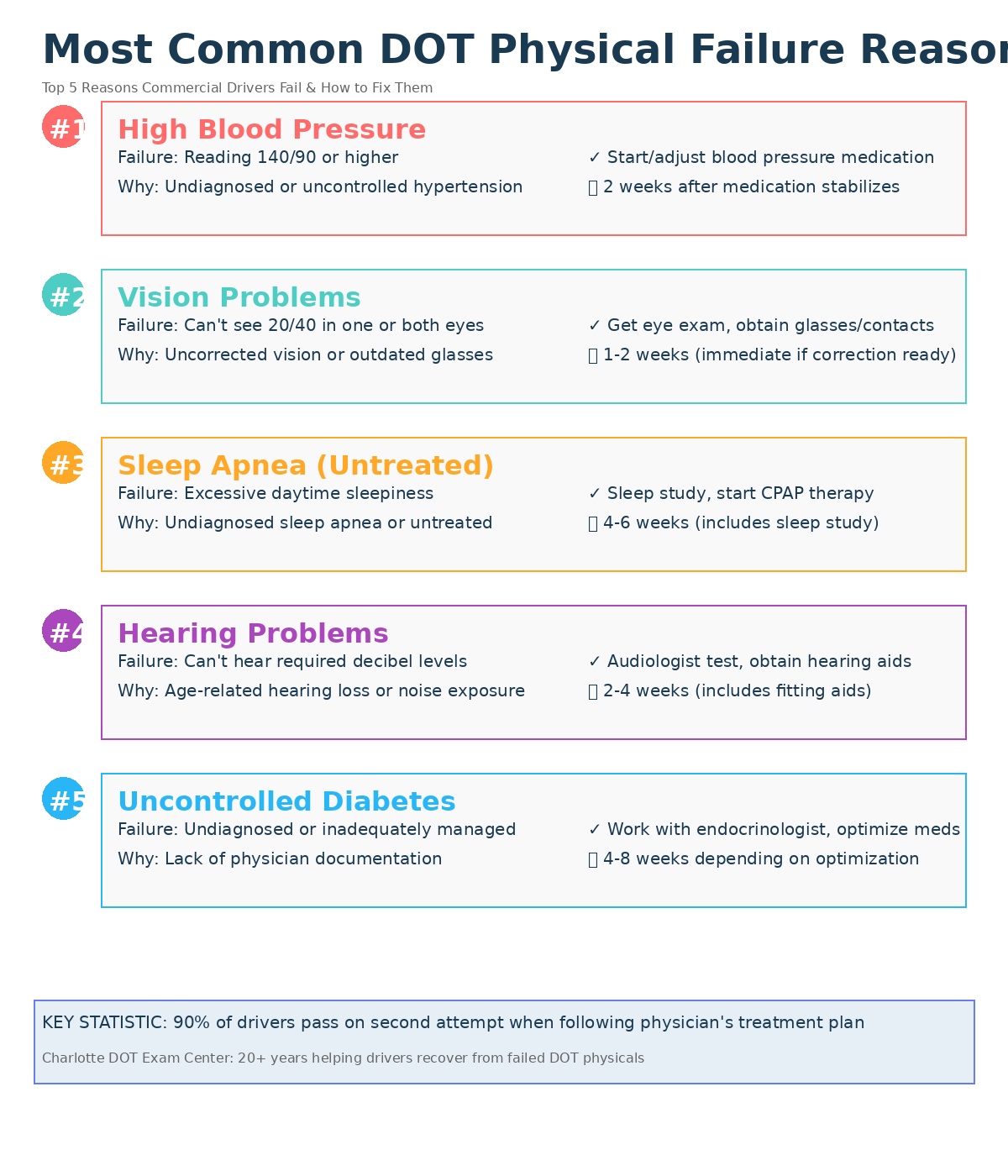
- Work with an endocrinologist: Get specialized care to optimize your diabetes management and stabilize your glucose levels.
- Demonstrate stable control: Bring blood glucose monitoring records and recent A1C results to your retest. The FMCSA wants evidence of consistent, stable management.
- Get physician documentation: Your doctor should provide written confirmation that your diabetes is controlled and safe for commercial driving.
- Timeline: Most retests occur 4-8 weeks after optimization of your diabetes management plan.
Other Common Disqualifying Conditions
Beyond the top five, drivers also fail for:
- Cardiac issues: Irregular heart rhythms, heart disease, or poor left ventricular ejection fraction (LVEF). Note: Drivers with an LVEF of at least 40% may still qualify for DOT certification depending on the specific condition.
- Neurological disorders: Epilepsy, narcolepsy, or conditions causing sudden loss of consciousness are automatic disqualifiers.
- Substance abuse: Positive drug tests or documented history of alcoholism or drug abuse.
- Certain medications: Some prescription medications (particularly stimulants like certain amphetamines) are disqualifying, even when prescribed by a physician.
The Path to Passing Your Next Exam
Here’s the reality: most drivers who fail a DOT physical don’t have an insurmountable problem. They have a medical condition that needs treatment. Once that condition is addressed—whether it’s starting blood pressure medication, getting glasses, or beginning CPAP therapy—they pass their next exam.
At Charlotte DOT Exam Center, we work with a network of local physicians who specialize in helping drivers address these exact issues. When you fail an exam with us, we don’t just send you away; we connect you with resources to fix the problem.
Why Choose Charlotte DOT Exam Center for Your Retest?
- 20+ years of experience: We’ve helped thousands of drivers navigate DOT medical requirements and successfully retest.
- No wait policy: Your time is valuable. We prioritize efficiency to minimize your time away from the road.
- FMCSA certified examiners: All exams are conducted by fully certified DOT medical examiners, no mid-level providers.
- Convenient locations and hours: Located on I-485 corridor with easy access from I-77 and I-85. Open Monday-Friday 9am-5pm, Saturday 9am-12pm. We have ample bobtail parking.
- One flat cost: $70 for your exam. No surprises, no hidden fees.
- Immediate electronic submission: Results are submitted directly to the FMCSA the same day. (Note: North Carolina DMV system is still syncing with FMCSA; we provide paper certificates for immediate proof of passing.)
Next Steps: Your DOT Physical Failure Recovery Plan
If you’ve failed a DOT physical, here’s your action plan:
- Identify the failure reason: Review your exam results and understand exactly which standard you didn’t meet.
- Schedule with your physician: Get professional medical advice on treatment and timeline to retest.
- Address the underlying condition: Follow your doctor’s treatment plan. This is the critical step—most drivers pass when they do this.
- Book your retest: Contact Charlotte DOT Exam Center. We’ll schedule you at a time that works for your recovery timeline.
- Bring documentation: If you’re on new medication, have new glasses, or are using a CPAP machine, bring documentation showing your treatment is in place.
- Get back on the road: After passing, your DOT medical certificate is valid for up to 24 months (or shorter interval if your physician recommends monitoring).
For more detailed recovery guidance, read our comprehensive guide: “Failed Your DOT Physical? Your Step-by-Step Recovery Guide.”
Ready to Schedule Your Retest?
Charlotte DOT Exam Center is here to help. We specialize in getting drivers back on the road with a valid medical certification.
Hours: Monday-Friday 9am-5pm | Saturday 9am-12pm
Location: 8415 Pineville-Matthews Road, Suite 102, Charlotte, NC 28226
Cost: $70 | Walk-ins & Appointments Welcome
We accept company contracts and can arrange drug testing if needed.
Related Articles
- Managing Borderline Blood Pressure Before Your DOT Exam
- Failed Your DOT Physical? Your Step-by-Step Recovery Guide
- Complete Guide to DOT Physical Failures: Prevention, Recovery, and Getting Back on the Road (Pillar Page)
External Resources

I am the administrator for the Charlotte DOT Exam facility, located in Charlotte NC. I oversee the facility services providing DOT exams in accordance with the standards of the FMCSA. We also provide DOT drug testing with MRO support when required. Drug testing can also be done for non-DOT exams such as pre-employment. In order to minimize wait times, I always encourage our clients to contact us first and make an appointment.
I would also suggest that each individual wanting to test for the CDL health card read the article “Preparing For Your DOT Exam” as it lists several things to bring to the test, such as CPAP usage reports and medicine lists.


